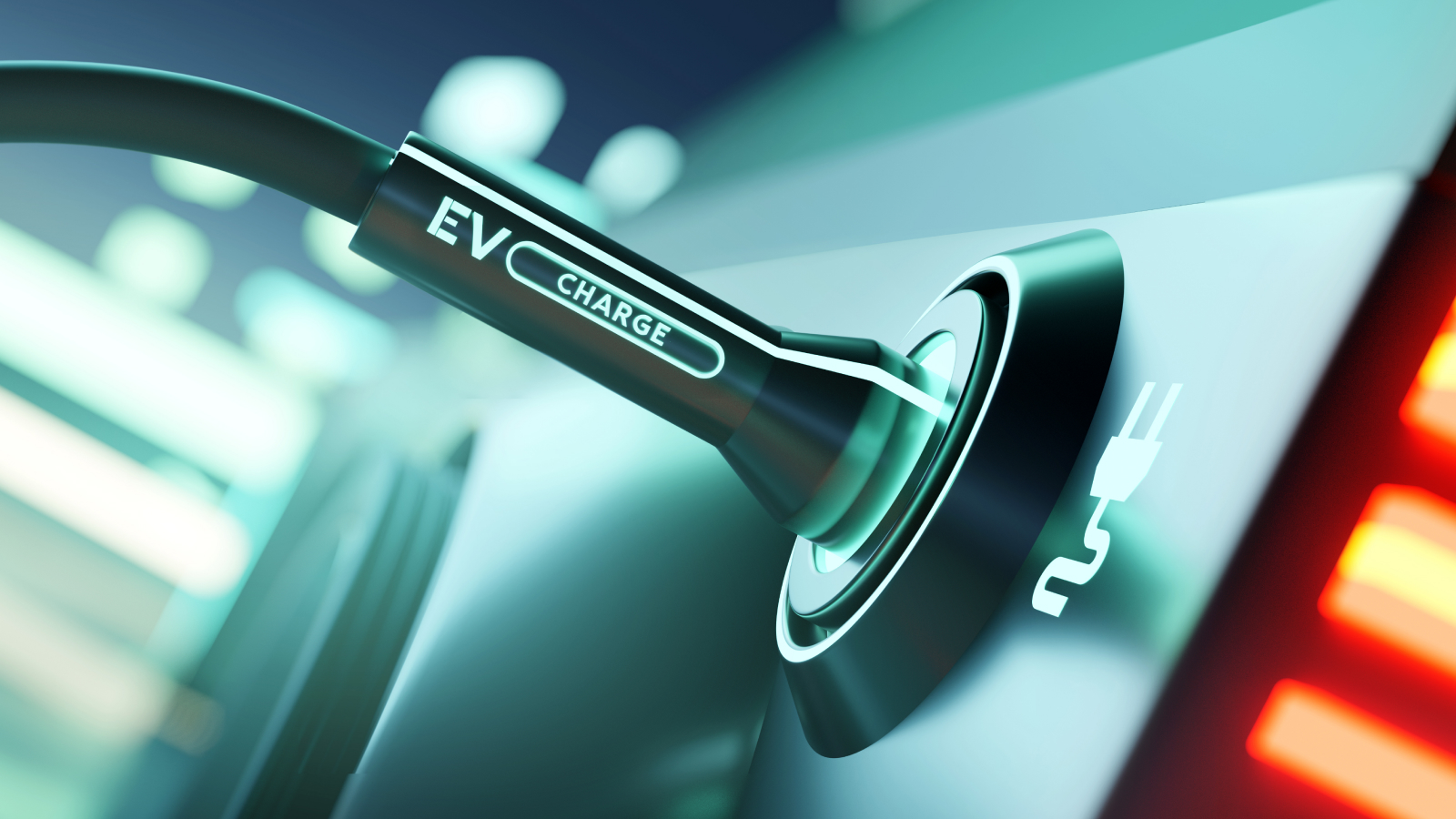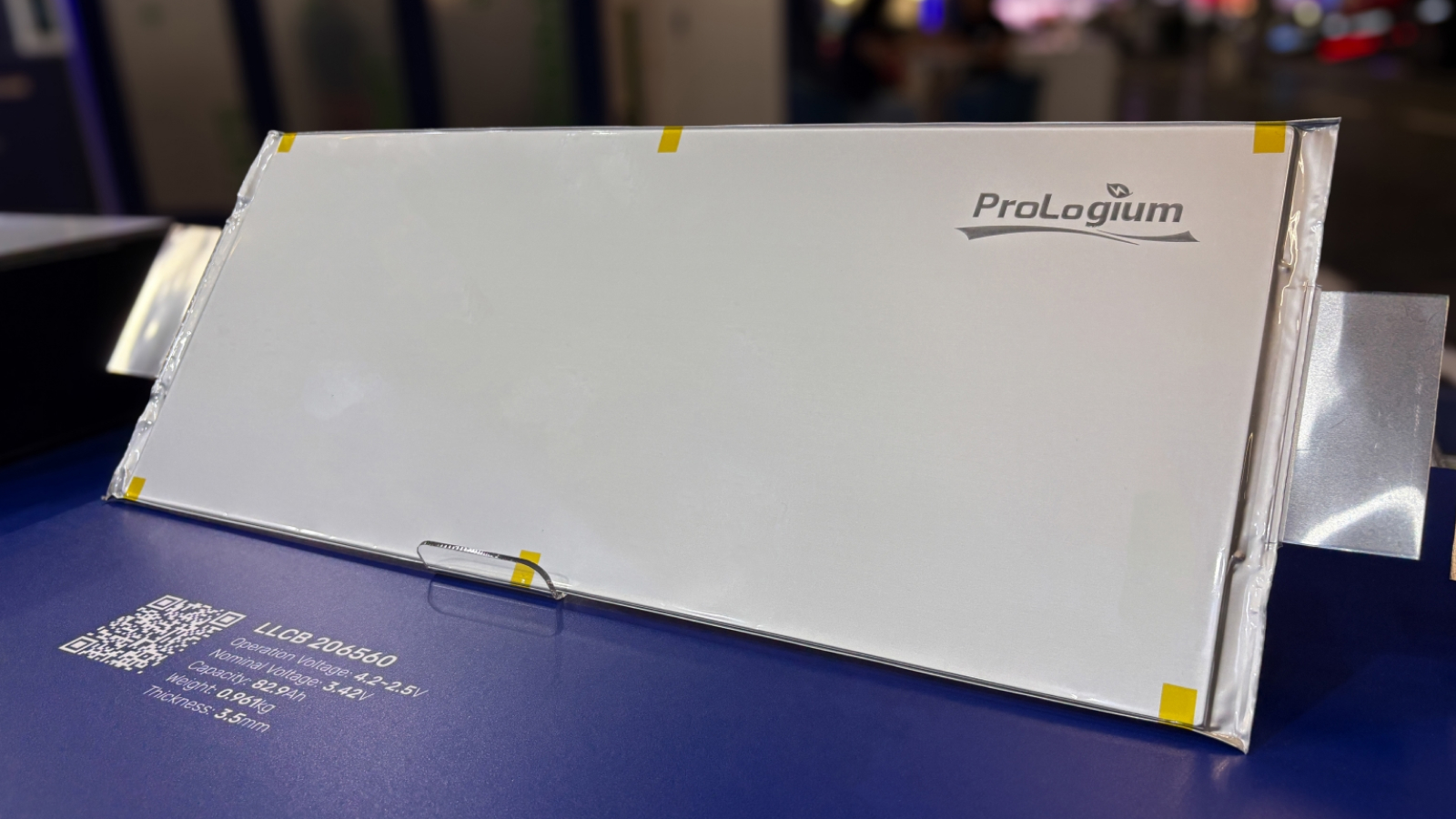
A ceramic battery manufacturer has unveiled a solid-state battery concept that can be charged from 5% to 60% capacity in just five minutes — giving future electric vehicles (EVs) a 186-mile (300 km) range in the time it takes to order a coffee.
Revealing the design at the 2024 Paris Motor Show on Oct. 14, ProLogium representatives said in a statement that its silicon composite anode battery offered much higher energy density — by both weight and volume — than commonly-used lithium-ion (Li-ion) or lithium iron phosphate (LFP) batteries.
Capacity has been certified by TUV Rhineland in Germany at 749 Watts per liter (Wh/L) volumetric (power by volume) and 321 Watts per kilogram (Wh/kg) gravimetric (power by weight). Existing technologies offer under 200Wh/kg in the case of LFP or 200 to 300 Wh/kg from Li-ion — meaning the new battery is far more dense than existing technologies.
ProLogium representatives also expect that ongoing development will see its silicon anode batteries offer up to 77% higher energy densities by the end of 2024. The five-minute charging time to 186 miles (300 km) is also much less than the industry's 30-minute average to reach the same distance capacity, representatives added.
Related: Experimental wireless EV charger is just as fast as a superfast wired plug, scientists say
Higher energy density by both volume and weight means that manufacturers can get more out of smaller packages. Vehicles can be designed with the same power but from smaller batteries, which means that space lost to batteries in hybrid EVs, for example, could be reclaimed. Alternatively, manufacturers could get a great deal more power from battery packs the same size as their current offerings, which could give sub-compact automobiles much longer ranges than are currently available.

The ProLogium battery is also modular in design, which means that service, maintenance and repair are all much easier, representatives said. In particular, damage to a single battery cell, or small group of cells, will not require the replacement of the entire battery pack at significant cost.
Founded in 2006, ProLogium has been providing components and samples for EVs but is now graduating to the commercialization of of solid-state batteries. Having previously delivered around 8,000 solid-state battery sample cells to global car manufacturers for testing and module development, the company is also partnering with Germany’s FEV Group, an engineering provider in the automotive industry, to mass-produce its solid-state battery concept.
"Over the past two years, our collaboration has resulted in customized battery packs and concept designs that not only meet, but exceed regulatory standards and market demands," said Thomas Hülshorst, global vice president of electric powertrain at FEV, in a statement. "By combining ProLogium’s visionary technology with FEV’s engineering strengths, we are paving the way for the future of sustainable mobility."
Production of the next-generation battery design is expected to begin in 2027.







